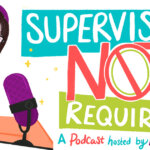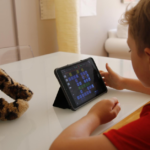






Social-Emotional Learning Doesn’t Have to Be Complicated
Social-emotional learning is an essential part of today’s schools and classrooms. This is for good reason, too. Social-emotional learning has been shown time and time again to be essential for a student’s success, both now and long-term. It’s not like this is a brand new concept. For centuries, social-emotional learning has been happening naturally throughout childhood. Often thought of as life skills or soft skills (though we prefer the term essential skills), everyday activities and learning can build independence, resilience, relationship skills, and more.
A shift has been happening in recent years, though. While kids used to have a lot more independence and freedom to experience social-emotional learning naturally, a lot of these opportunities are going away. With helicopter and lawnmower parenting styles at an all-time high, parents feel like they need to observe (and in some cases control) their children’s every move. As a result, our students are not developing these important life skills.
Here at Let Grow, we want to help. We see the great work schools and educators are doing to provide social-emotional learning (SEL) that helps kids grow into confident and capable adults. So we’ve developed a variety of K-8 programs that align with SEL education standards that can also benefit students, parents, and schools. Here’s how our Let Grow Project, Let Grow Play Club, and Independent Classroom help with SEL.
Let’s look at the framework for understanding social-emotional skills.
Social-emotional skills are often skills that adults use every single day. For instance, going to the grocery store involves so much more than buying things. We have to assess our needs, make a list, choose items that fit our budget, and even handle frustrations like crowded parking lots and waiting in long lines. All of this requires vital social-emotional skills most adults don’t even think about.
Kids need to learn those skills, though. The Collaborative for Academic, Social, and Emotional Learning (CASEL) is the leading authority on the topic, and it’s what we use to assess our own materials at Let Grow. They’ve identified five core competency areas (learn more about each here), which you can see below.

Many schools focus on cultivating a growth mindset, a term coined by Dr. Carol Dweck. She used it to describe how our personal beliefs about learning and intelligence impact the way we react to challenges and failure. To develop a growth mindset, kids need as many chances to fail as to succeed, and they have to experience and push through frustration. When we protect kids from feeling “negative” emotions like disappointment, they lose the chance to build perseverance and grit.
How does the Let Grow Project support social-emotional learning?
Social-emotional skills are difficult to teach through traditional school lessons. The Let Grow Project encourages parents to step back so their kids can step up. The goal is simple: kids choose one new activity to try all on their own, then report back on their progress. Social-emotional learning happens naturally through real-life experiences.
When kids try, make mistakes, and then succeed at self-directed activities, they build resilience and confidence. Imagine a child preparing to cook breakfast or ride a bike around the block on their own for the first time. Initially, they’re nervous about doing something new without an adult to guide them. As they complete their task, they’ll have to make decisions, adjust expectations, and truly believe in themselves. When they meet their goal, the sense of accomplishment is instant and meaningful.
The Let Grow Project can be used for a wide range of students, from preschool to teens. It’s also a great tool to use with special education students or to promote positive mental health. In fact, we know reports say as many as one in three teens are impacted by anxiety. See this video, below, of a middle school who did the Let Grow Project and how it helped their students.
How does the Let Grow Play Club support social-emotional learning?
In the past, neighborhood kids of all ages got together for spontaneous, unstructured, outdoor play. Today, many kids find their days filled with scheduled adult-organized activities, often in segregated age and gender groups. They spend most of their time being told what to do, how to do it, and when. When kids argue, adults step in to mediate, preaching fairness and solving problems for them. Kids lose vital chances for social-emotional learning, including managing emotions and relationships.
The Let Grow Play Club wants to give kids the chance to play together as they once did. It encourages a return to free play, where children of all ages choose their own fun. Play Club creates an environment where kids learn to negotiate, collaborate, and get along so the play (and the fun!) can continue. Social-emotional relationship skills evolve naturally in real-life, low-risk situations.
How does the Independent Classroom Kit support social-emotional learning?
In an Independent Classroom, students learn to be responsible for themselves. This goes beyond simply getting their own school work done. Independent students work together to manage supplies and keep their classrooms organized. They help create class rules and ensure everyone’s needs are respected and met. Students in an Independent Classroom feel a real sense of ownership and accountability for their own learning, and they begin to see the importance of building a positive community culture too. The Independent Classroom Kit provides tools like posters, goal-setting sheets, and more to support teachers as they give students more responsibility.
We know schools and educators are stepping up in big ways to bring social-emotional learning to their students, and we hope our free programs can help. After all, the potential benefits will have a powerful impact on our youth for many years to come.
Check out this video of a mom who learned to let go and embrace her child’s independence.



Add your comment now using your favorite social account or login to your LetGrow account.